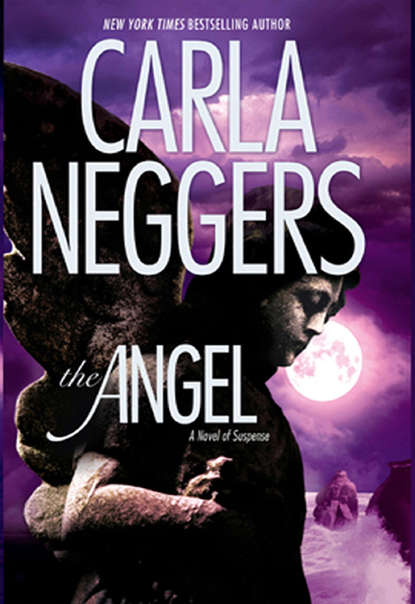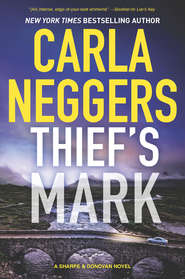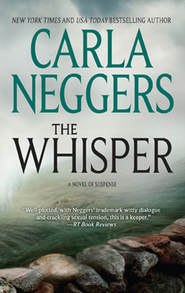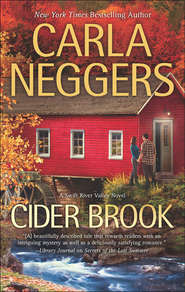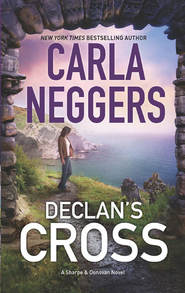По всем вопросам обращайтесь на: info@litportal.ru
(©) 2003-2024.
✖
The Angel
Автор
Год написания книги
2019
Настройки чтения
Размер шрифта
Высота строк
Поля
Her mother shook her head. “The Book of Kells is a masterpiece. It’s been described as the work of angels. I’m a mere human.”
Another wind gust shook the trees outside on the hill. Storms were brewing, a cold front about to move in and blow out the humidity that had settled over New England during the past week. Keira wanted to get back to her car before the rain started.
“Did you see the Book of Kells when you were in Ireland in college?”
“I did.” Her mother’s tone was distant, controlled. She shifted her gaze to the blank, pure white paper on her desk, as if envisioning the intricate, thousand-year-old illuminated manuscript. “I’ll never forget it. What I’m doing is quite different. Much simpler.”
“It’ll be wonderful.”
“Thank you. The Book of Kells consists mainly of the four Gospels, but I was asked to start with the fall of Adam and Eve.” Her mother’s eyes, a striking shade of cornflower blue, shone with sudden humor. “I haven’t settled on the right serpent.”
Keira noticed a series of small pencil sketches taped to the birch board. “Those are some pretty wild serpents. It doesn’t get to you, being up here all alone drawing pictures of bad-assed snakes and bolts of lightning?”
Her mother laughed. “No bolts of lightning, I’m afraid. Although…” She thought a moment. “I don’t know, Keira, you could be onto something. A bright, organic bolt of lightning in the Garden of Eden could work, don’t you think?”
Keira could feel the tension easing out of her. She’d moved to Boston in January after a brief stint in San Diego and had trekked up here on snowshoes, hoping just to find her mother alive and reasonably sane. But her mother had been warm and toasty, a pot of chili bubbling on her woodstove, content with her rigid routines of prayer and work. Keira had thought living closer would mean they’d see more of each other. It hadn’t. She could have stayed in San Diego or moved to Miami or Tahiti or Mozambique—or Ireland, she thought. The land of her ancestors.
The land of her father.
Maybe.
Her mother’s sociability didn’t last, and the humor in her eyes died almost immediately. A studied blankness—a sense of peace, she would no doubt say—brought a neutrality to her expression. She seemed to take a conscious step back from her engagement with the world. In this case, the world as represented by her daughter.
Keira tried not to be offended. “I came to say goodbye for a few weeks. I leave for Ireland tomorrow night for six weeks.”
“Six weeks? Isn’t that a long time?”
“I’m doing something different this trip.” Keira hesitated, then said, “I’m renting a cottage on the southwest coast. The Beara Peninsula.”
Her mother gazed out at her wooded hillside. A second screen door opened onto another rock step and a small yard where she’d planted a vegetable garden, fencing it off to keep out deer and who knew what other animals.
Finally, she let out a breath. “Always so restless.”
True enough, Keira thought. As a child, she’d roamed the woods with a sketch pad and colored pencils. In college, she’d snapped up every opportunity to go places—backpacking with friends out West, jumping on a lobster boat with a short-lived boyfriend, spending a summer in Paris on a shoestring. After college, she’d tried several careers before falling back on what she loved most—drawing, painting, folklore. She’d managed to combine them into a successful career, becoming known for her illustrations of classic poems and folktales. That her work was portable, allowing her to indulge her sense of adventure, was another plus.
“When I was here last,” she said, “I told you about a project I’m involved with—I’m working with an Irish professor who’s putting together a conference on Irish folklore next spring. It’ll be in two parts, one in Boston and one in Cork.”
“I remember,” her mother said.
“One of the emphases will be on twentieth-century immigrants to America. I’ve been working that angle, and I ended up deciding to put together and illustrate a collection specifically of their stories. I have a wonderful one Gran told me before she died. She was from West Cork—”
“I know she was. Keira…” Her mother’s eyes were pained.
“What’s wrong? I’ve been to Ireland before. Not the Beara Peninsula, but—Mum, are you afraid I’m going to run into my father?”
“Your father was John Michael Sullivan.”
But Keira was referring to her biological father. Her mother had returned home from a summer study program in Ireland at nineteen, pregnant with Keira. When Keira was a year old, her mother had married John Sullivan, a South Boston electrician ten years her senior. He was killed in a car accident two years later, and his widow and adopted daughter had moved out of Boston and started a new life.
Keira had no clear memory of him, but when she looked at pictures of him, she felt an overwhelming sense of affection, gratitude and grief, as if some part of her did remember him. Her mother never discussed that one trip to Ireland thirty years ago. For all Keira knew, her biological father could have been a Swedish tourist or another American student.
She debated a moment, then said, “A woman on your old street in South Boston heard about the folklore project and got in touch with me. She told me this incredible story about three Irish brothers who fight with each other and fairies over an ancient stone angel—”
“Patsy McCarthy,” her mother said in a toneless voice.
“That’s right. She says she told you this story, too, before your trip to Ireland. The brothers believe the statue is of one of the angels said to visit Saint Ita during her lifetime. The fairies believe it’s not an angel at all but actually one of their own who’s been turned to stone. There’s more to it—it’s quite a tale.”
“Mrs. McCarthy told a lot of stories.”
“Her grandfather heard this one when he worked in the copper mines on the Beara Peninsula and told it to Patsy when she was a little girl in Ireland. The village where the brothers lived isn’t named, but there are enough details—”
“To pinpoint it. Yes, I know.”
“And the spot where the hermit monk brother lived. You could make a stab at finding it, at least, if you know the story.” Keira waited, but when her mother didn’t respond, continued. “Patsy told me you were determined to find the village and look for the hermit monk’s hut on your trip to Ireland before I was born.”
“She’s a gifted storyteller.”
“Yes, she is.”
Her mother lifted a small, filmy sheet of gold leaf to the light streaming in through the window. The use of gold—real gold—was what distinguished a true illuminated manuscript, but Keira knew it was far too soon for her mother to apply gold to her work-in-progress.
“Do you know the difference between sin and evil, Keira?”
Keira didn’t want to talk about sin and evil. She wanted to talk about Patsy’s old story and magic, mischief and fairies. “It’s not something I think much about.”
“Adam and Eve sinned.” Her mother turned the gold leaf so that it gleamed in the late-afternoon light. “They wanted to please God, but they succumbed to temptation. They regretted their disobedience. They took no delight in what they did.”
“In other words, they sinned.”
“Yes, but the serpent is a different case altogether. He delights in his wrongdoing. He exults in thwarting God. He sees himself as the antithesis of God. Unlike Adam and Eve, the serpent didn’t commit a sin in the Garden of Eden. The serpent chose evil.”
“Honestly, Mum, I don’t know how you can stand to think about this stuff out here by yourself.”
She set the thin gold leaf on the pure white paper. Keira knew from experience that the gold leaf was difficult to work with but resilient, able to withstand considerable manipulation without breaking into pieces. Applied properly, it looked like solid gold, not just a whisper of gold.
“We all sin, Keira,” her mother said without a hint of a smile, “but we’re not all evil. The devil understands that. Evil is a particular dispensation of the soul.”
“Does this have anything to do with Ireland? With what happened there when you—”
“No. It has nothing at all to do with Ireland.” She took a breath. “So, how’s your work?”
Keira stifled her irritation at the abrupt change of subject. It felt like a dismissal and probably was, but she reminded herself that she hadn’t come out to the woods to judge her mother, or even for information. She’d come simply to say goodbye before flying out of Boston tomorrow night.
“My work’s going great right now, thanks.” Why go into detail when that world no longer interested or concerned her mother?
“That’s good to hear. Thank you for stopping by.” She got to her feet and hugged Keira goodbye. “Live your life, sweetheart. Don’t get too caught up in all these crazy old stories. And please don’t worry about me out here. I’m fine.”
On her way back through the woods, Keira resisted the urge to look over her shoulder for the devil and serpents. Instead, she remembered herself as a child, and how her mother would sing her Irish songs and read her stories. Every kind of story—stories about fairies and wizards and giants, about hobbits and elves and dark lords, princes and princesses, witches, goblins, cobblers, explorers and adventurers.





